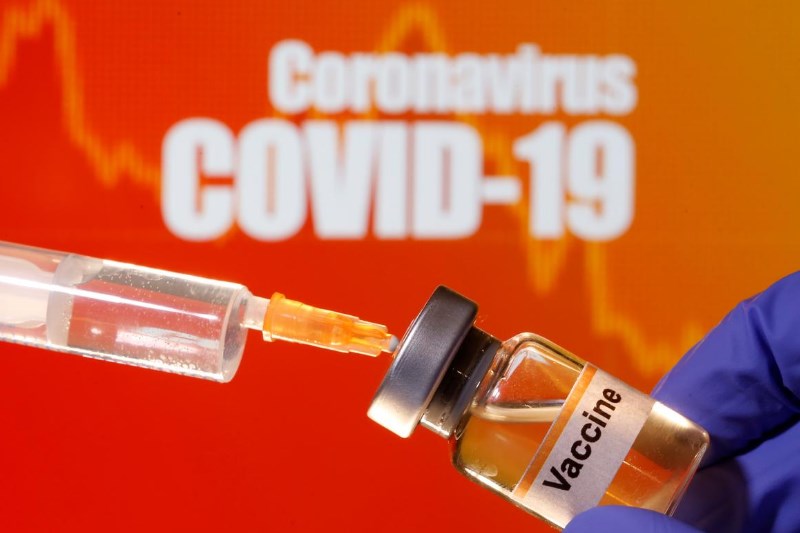On Monday, Jefferies maintained a Hold rating on Moderna (NASDAQ: NASDAQ:MRNA) but reduced the price target to $55 from $65. The adjustment follows a series of concerns, including lower-than-expected guidance for the coming years and delayed cost cuts. The company's second-quarter earnings report revealed a reduction in its 2024 guidance and subsequent R&D day announcements further lowered expectations for 2025. Additionally, anticipated cost reductions of $1 billion are now expected to take effect in 2027, rather than sooner.
The analyst highlighted that Moderna's Respiratory Syncytial Virus (RSV) vaccine projections are minimal for 2024, and there's uncertainty regarding the company's ability to secure contracts in 2025. This is due to strong competition from pharmaceutical giants like GSK and Pfizer (NYSE:PFE) and unclear vaccine recommendations for the next RSV season. Concerns have also been raised about Moderna's cash burn rate, as current spending levels remain high at $5-6 billion, and the pushback of profitability forecasts to 2028 from the previously projected 2026.
Despite these challenges, the analyst sees potential for the stock to gain momentum from positive interim data on the Cytomegalovirus (CMV) vaccine expected by year-end. Looking ahead to the third-quarter guidance, the company anticipates booking $2.6-3.2 billion through the rest of the year, with about 40% of COVID-19 revenues expected in the third quarter and the remaining 60% in the fourth quarter.
Moderna's projections suggest approximately $1-1.2 billion in revenue for the third quarter. The analyst's model predicts around $1 billion in revenue, with approximately $540 million from U.S. sales, based on 4 million retail prescriptions tracked through IMS and an additional 30% from non-retail channels at an estimated net price of $80 per shot. The guidance for the second half of the year indicates about $670 million each from the Advanced Purchase Agreement (APA) and ex-U.S. COVID-19 sales, or roughly $270 million for each segment in the third quarter, totaling approximately $540 million. These figures fall below the consensus estimate of around $1.2 billion for the third quarter.
In other recent news, Moderna Inc. has made several significant developments. The company has appointed Abbas Hussain, the former CEO of Vifor Pharma and Global President of GlaxoSmithKline (NYSE:GSK)'s Pharmaceuticals and Vaccines, to its board of directors. Hussain's extensive experience in healthcare is expected to enhance Moderna's global commercialization initiatives.
Moderna has also launched a pivotal Phase 3 clinical trial for its investigational norovirus vaccine, mRNA-1403. The trial aims to enroll approximately 25,000 participants worldwide. In addition, the company's updated COVID-19 vaccine, SPIKEVAX®, has received approval from Health Canada for the 2024-2025 season.
Several analyst firms have revised their outlooks on Moderna. Piper Sandler reduced its target for Moderna to $115 from $157, maintaining an Overweight rating. Oppenheimer downgraded Moderna stocks to a neutral "Perform" status, and RBC Capital reduced its price target for Moderna from $90 to $75. Brookline Capital Markets and TD Cowen also revised their price targets for Moderna.
Moderna estimates product sales to be between $3 billion and $3.5 billion for the current year. However, the forecast for reaching cash flow breakeven has been deferred to 2028, with projected revenues of approximately $6.0 billion. These are recent developments that investors should consider.
InvestingPro Insights
Recent InvestingPro data paints a challenging picture for Moderna, aligning with the concerns raised in Jefferies' analysis. The company's revenue for the last twelve months as of Q2 2024 stands at $5.05 billion, with a significant revenue decline of 52.6% over the same period. This decline supports the analyst's concerns about lower-than-expected guidance and potential challenges in securing future contracts.
Moderna's financial health is further highlighted by two key InvestingPro Tips. First, the company is "quickly burning through cash," which corroborates the analyst's worries about Moderna's high spending levels and delayed cost-cutting measures. Second, analysts do not anticipate the company will be profitable this year, echoing the pushback of profitability forecasts to 2028 mentioned in the article.
Despite these challenges, it's worth noting that Moderna "holds more cash than debt on its balance sheet," which could provide some financial flexibility as the company navigates its current difficulties. For investors seeking a more comprehensive analysis, InvestingPro offers 9 additional tips that could provide further insights into Moderna's financial situation and future prospects.
This article was generated with the support of AI and reviewed by an editor. For more information see our T&C.
